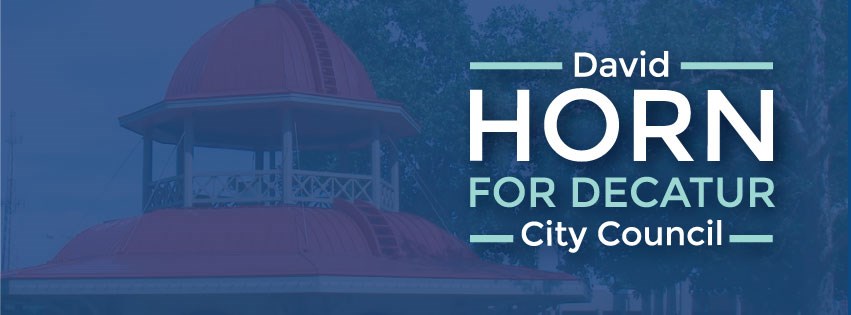
Increasing Decatur property taxes 9% is poor public policy
Macon County, IL had the 10th highest effective property tax rate in the U.S. in 2023 at 2.13% according to a property tax analysis by ATTOM (the national average is 0.87%). In the second quarter of 2023, Macon County, IL had the highest percentage of home loans underwater in the country (17.6%) and the likelihood of a Macon County property with a foreclosure filing was 12.9 times greater than the national average according to ATTOM.
Rather than reducing property taxes collected, Decatur city staff are recommending that the city council increase the amount of property tax it collects by 9%. Not only is this property tax increase higher than what was proposed at the 2025 budget study session on October 14 (i.e., 5%), it far exceeds the growth in the city’s equalized assessed value that stems from new construction, renovations, and annexations last year which is estimated at 3%.
Currently, there are thousands of families in Decatur who are mortgage- or rent-distressed. Thus, residents of Decatur are justified to be concerned with the city’s proposal to increase the amount of property taxes 9%. Over 40% of Macon County residents do not make enough income to make ends meet let alone pay higher taxes. In my view, a 9% property tax increase is poor public policy and seemingly ignores the challenges Decatur residents face on a day-to-day basis.
CITY STAFF PROPOSE TWO ALTERNATIVES TO CLOSE THE UTILITY TAX LOOPHOLE
In Decatur, entities that purchase natural gas from a supplier other than Ameren do not have to pay the city’s utility tax. Those entities that have taken advantage of this loophole have likely cumulatively saved over $10 million since 2019. The city council is considering closing this loophole, an action that will likely have no impact on residents, would create tax equity among all natural gas users, and partially fund community revitalization initiatives. The natural gas utility tax currently applies to 35,000-40,000 commercial and residential accounts. There are approximately 450 utility accounts representing 200 separate users that would be affected by the change (1% of the total accounts) with ADM Co. and Primient being the most impacted.
City staff originally recommended to the council that the loophole be closed by charging a rate of $0.0425 cents per therm with the exception of manufacturers that used at least 40 million therms a year who would be taxed at $0.0225 cents per therm. The tax would be effective January 1, 2025. This version was recommended by city staff to the council at its October 7 meeting, the city council tabled the ordinance that evening, and then the council consented to bring that ordinance as is back to the agenda during the October 21 meeting for its November 4 meeting.
As of October 31, the city staff now recommends a new ordinance in which the rate will be $0.0425 cents per therm to a maximum of 40 million therms on any single Manufacturer’s account, and the effective date will be April 1, 2025. Breaking with norms, the memo accompanying the two alternatives did not indicate the difference in money to be collected under the different alternatives even though the difference could be in the hundreds of thousands of dollars annually.
STUDENTS SHOULD FEEL SAFE WALKING TO CLASS
Whatever option the Decatur City Council selects to close the utility tax loophole, the city is proposing substantial cuts to its community revitalization program in 2025 at a time when needs are growing. As one of many examples throughout the city, I have heard many concerns from current and former business owners of the Oakwood Business District, residents of the Millikin Heights neighborhood, and students and employees of Millikin University about the decline of their neighborhood and public safety.
Since 2018, there have been multiple homicides within approximately two blocks of the intersection of W. Main St. and N. Oakland Ave. Reportedly, some Millikin students would rather walk between train cars to cross Wood St. rather than walk on Oakland Ave. to get from their apartments to campus, as doing so is perceived to be safer. Thus, by making substantial cuts to neighborhood revitalization initiatives, the city may be erecting a substantial barrier to recruiting and retaining the next generation of Decatur residents and workers, as some Millikin students do not feel safe simply walking to class.
PLEASE EXPRESS YOUR VIEWS AT THE NEXT CITY COUNCIL MEETING
The next city council meeting will take place on Monday, November 4 at 5:30 PM in the council chambers located on the third floor of the Decatur Civic Center (1 Gary K. Anderson Place). Free parking is available in the lot immediately south of the entrance. Citizens are encouraged to attend meetings and express their views. Citizens are allotted 3 minutes per person near the beginning of each city council meeting. In addition, citizens can provide comments regarding one regular agenda item per meeting for up to three minutes provided they notify the city in advance (and prior to the start of the meeting). You can request to speak on a particular agenda item at a council meeting by filling out an on-line form at: https://www.decaturil.gov/FormCenter/Mayor-Council-11/Advance-Request-to-Speak-at-Council-Meet-60.
AGENDAS FOR CITY COUNCIL MEETINGS ARE AVAILABLE ONLINE
An agenda and information about each agenda item for each city council meeting can be found at: https://www.decaturil.gov/mayor-and-council/council-meetings/.
CITIZENS ARE ENCOURAGED TO PROVIDE FEEDBACK TO CITY COUNCIL MEMBERS
If you would like to discuss city issues with a council member, phone numbers and email addresses for each council member can be found at the following link: https://www.decaturil.gov/300/Mayor-Council.
